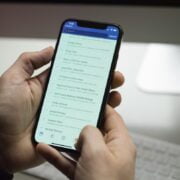
When Social Media Fails: How to Stay Healthy During Facebook’s Downtime
Social media has become an integral part of our daily lives. It has changed the way we communicate, connect, and consume information. Platforms like Facebook, Instagram, Twitter, and Snapchat have allowed us to stay connected with friends and family, share our thoughts and experiences, and discover new ideas and perspectives. However, social media also has its downsides, including its impact on our mental health.
Key Takeaways
- Social media has a significant impact on our lives.
- Facebook downtime can negatively affect our mental health.
- Taking a break from social media has numerous benefits.
- Exploring alternative social platforms can help us connect in different ways.
- Face-to-face communication is crucial for building stronger relationships.
The Reality of Facebook’s Downtime: How It Affects Our Mental Health
Facebook’s recent downtime highlighted our dependence on social media. During the outage, many people felt a sense of panic and anxiety as they were unable to access their accounts and connect with others. This dependence on social media can have a negative impact on our mental health. Studies have shown that excessive social media use is linked to depression, anxiety, and low self-esteem.
One reason for this is the constant comparison that occurs on social media. People often present an idealized version of their lives, showcasing only the highlights and positive moments. This can lead to feelings of inadequacy and comparison, as we compare our own lives to the seemingly perfect lives of others. Additionally, social media can be a breeding ground for negativity and cyberbullying, further impacting our mental well-being.
Disconnecting from Social Media: The Benefits of Taking a Break
Taking a break from social media can have numerous benefits for our mental health. It allows us to disconnect from the constant noise and distractions of the online world and focus on ourselves and our well-being. By stepping away from social media, we can reduce stress, improve our mental health, and increase productivity.
When we take a break from social media, we have more time to engage in activities that bring us joy and fulfillment. We can spend quality time with loved ones, pursue hobbies and interests, or simply relax and recharge. By disconnecting from social media, we can also reconnect with the real world and build stronger relationships. Face-to-face interactions are essential for building deep connections and fostering a sense of belonging.
Finding Alternative Ways to Connect: Exploring Other Social Platforms
While social media platforms like Facebook and Instagram dominate the online landscape, there are many other social platforms that can be used to connect with others. These platforms may offer a different experience and may be less overwhelming than traditional social media.
LinkedIn, for example, is a professional networking platform that allows users to connect with colleagues, industry professionals, and potential employers. It can be a valuable tool for building professional relationships and advancing your career. Meetup is another platform that allows users to find like-minded individuals and join groups based on shared interests and hobbies. This can be a great way to meet new people and expand your social circle.
By exploring alternative social platforms, we can find communities that align with our interests and values, allowing us to connect with others in a more meaningful way.
The Importance of Face-to-Face Communication: Building Stronger Relationships
While social media has made it easier than ever to connect with others, face-to-face communication is still essential for building strong relationships. In-person interactions allow us to connect on a deeper level, build trust, and truly understand one another.
When we communicate face-to-face, we can pick up on nonverbal cues and emotions that are often lost in online communication. We can see the expressions on someone’s face, hear the tone of their voice, and observe their body language. This allows for a more nuanced understanding of one another and fosters empathy and connection.
Additionally, face-to-face communication allows for real-time feedback and immediate resolution of conflicts or misunderstandings. It promotes active listening and encourages us to be fully present in the conversation. By prioritizing face-to-face communication, we can build stronger relationships and cultivate a sense of belonging and connection.
Avoiding the Comparison Trap: Managing Social Media-Induced Anxiety
One of the biggest challenges of social media is the constant comparison that occurs. It’s easy to fall into the trap of comparing our lives to the highlight reels of others, leading to feelings of inadequacy and anxiety. To manage social media-induced anxiety, it’s important to recognize these feelings and take steps to manage them.
One strategy is to limit social media use. Set boundaries for yourself and designate specific times when you will engage with social media. This can help prevent mindless scrolling and reduce the likelihood of falling into the comparison trap.
Another strategy is to unfollow accounts that make you feel inadequate or trigger negative emotions. Curate your social media feed to include accounts that inspire and uplift you. Focus on following accounts that align with your values and interests, and that promote positivity and well-being.
Lastly, practicing gratitude can help shift your mindset away from comparison and towards appreciation for what you have. Take time each day to reflect on the things you are grateful for, whether it’s your health, relationships, or personal achievements. By focusing on gratitude, you can cultivate a more positive mindset and reduce social media-induced anxiety.
Prioritizing Self-Care: Nurturing Your Mental and Emotional Wellbeing
Self-care is essential for maintaining good mental and emotional health, especially in the age of social media. It’s important to prioritize self-care and make it a regular part of our routine.
Self-care can take many forms, depending on your individual preferences and needs. It can include activities such as exercise, meditation, journaling, spending time in nature, or engaging in creative pursuits. The key is to find activities that bring you joy and help you relax and recharge.
By prioritizing self-care, you are sending a message to yourself that your mental health and well-being are important. It allows you to take a step back from the constant demands of social media and focus on nurturing yourself.
Utilizing Productivity Tools: Maximizing Your Time Offline
In a world that is constantly connected, it can be challenging to disconnect from social media and maximize our time offline. However, there are many productivity tools that can help us stay focused, manage our time, and reduce distractions.
Time-blocking is a technique that involves scheduling specific blocks of time for different activities. By allocating dedicated time for tasks such as work, exercise, hobbies, and socializing, you can ensure that you are making the most of your time offline.
The Pomodoro technique is another productivity tool that can help you stay focused and manage your time effectively. It involves working in short bursts of intense focus, followed by short breaks. This can help prevent burnout and increase productivity.
Additionally, there are digital detox apps available that can help you reduce your screen time and limit your access to social media. These apps allow you to set specific time limits for social media use and provide reminders when you have reached your limit.
By utilizing productivity tools, you can maximize your time offline and create a healthy balance between social media and other aspects of your life.
Embracing the Present Moment: Mindfulness Techniques for a Healthier Mindset
Mindfulness is a powerful tool for reducing stress and improving mental health. It involves being present in the moment and focusing on our thoughts and feelings without judgment.
There are many mindfulness techniques that can be practiced to cultivate a healthier mindset. Meditation is one of the most well-known mindfulness practices and involves sitting quietly and focusing on your breath or a specific point of focus. This can help calm the mind, reduce stress, and improve overall well-being.
Deep breathing exercises are another mindfulness technique that can be practiced anywhere, at any time. By taking slow, deep breaths and focusing on your breath as it enters and leaves your body, you can activate the body’s relaxation response and reduce stress.
Body scans are another mindfulness technique that involves bringing awareness to different parts of your body, noticing any sensations or tension, and consciously releasing any tension or discomfort. This can help you become more attuned to your body and reduce physical and mental stress.
By embracing mindfulness techniques, you can cultivate a healthier mindset and reduce the negative impact of social media on your mental health.
The Road to Recovery: How to Reintegrate Social Media into Your Life in a Healthy Way
If you decide to reintegrate social media into your life after taking a break, it’s important to do so in a healthy way. This means setting boundaries, limiting use, and focusing on positive interactions.
Set boundaries for yourself around social media use. Determine how much time you are willing to spend on social media each day and stick to it. Consider using apps or features that track your screen time and provide reminders when you have reached your limit.
Limit your exposure to negative content and interactions. Unfollow accounts that promote negativity or trigger negative emotions. Focus on following accounts that inspire and uplift you, and that align with your values and interests.
Lastly, focus on positive interactions and meaningful connections. Use social media as a tool for staying connected with loved ones, sharing your thoughts and experiences, and discovering new ideas and perspectives. Avoid mindless scrolling and engage with content that brings value to your life.
It’s important to prioritize your mental health and well-being above all else. If at any point social media becomes overwhelming or negatively impacts your mental health, don’t hesitate to take a step back and reassess your relationship with it. Remember that you have the power to control how social media affects your life, and it’s up to you to create a healthy balance.
FAQs
What is the article about?
The article is about how to stay healthy during Facebook’s downtime when social media fails.
Why does social media downtime affect our health?
Social media has become an integral part of our lives, and its downtime can cause anxiety, stress, and a feeling of disconnection from the world.
What are the effects of social media on our mental health?
Social media can have both positive and negative effects on our mental health. It can lead to feelings of loneliness, anxiety, and depression, but it can also provide a sense of community and support.
What are some tips for staying healthy during social media downtime?
Some tips for staying healthy during social media downtime include taking a break from technology, spending time with loved ones, practicing self-care, and engaging in physical activity.
How can we reduce our dependence on social media?
We can reduce our dependence on social media by setting boundaries, limiting our screen time, and finding alternative ways to connect with others.
What are some alternative ways to connect with others?
Some alternative ways to connect with others include joining a club or group, volunteering, attending social events, and spending time with friends and family in person.


















